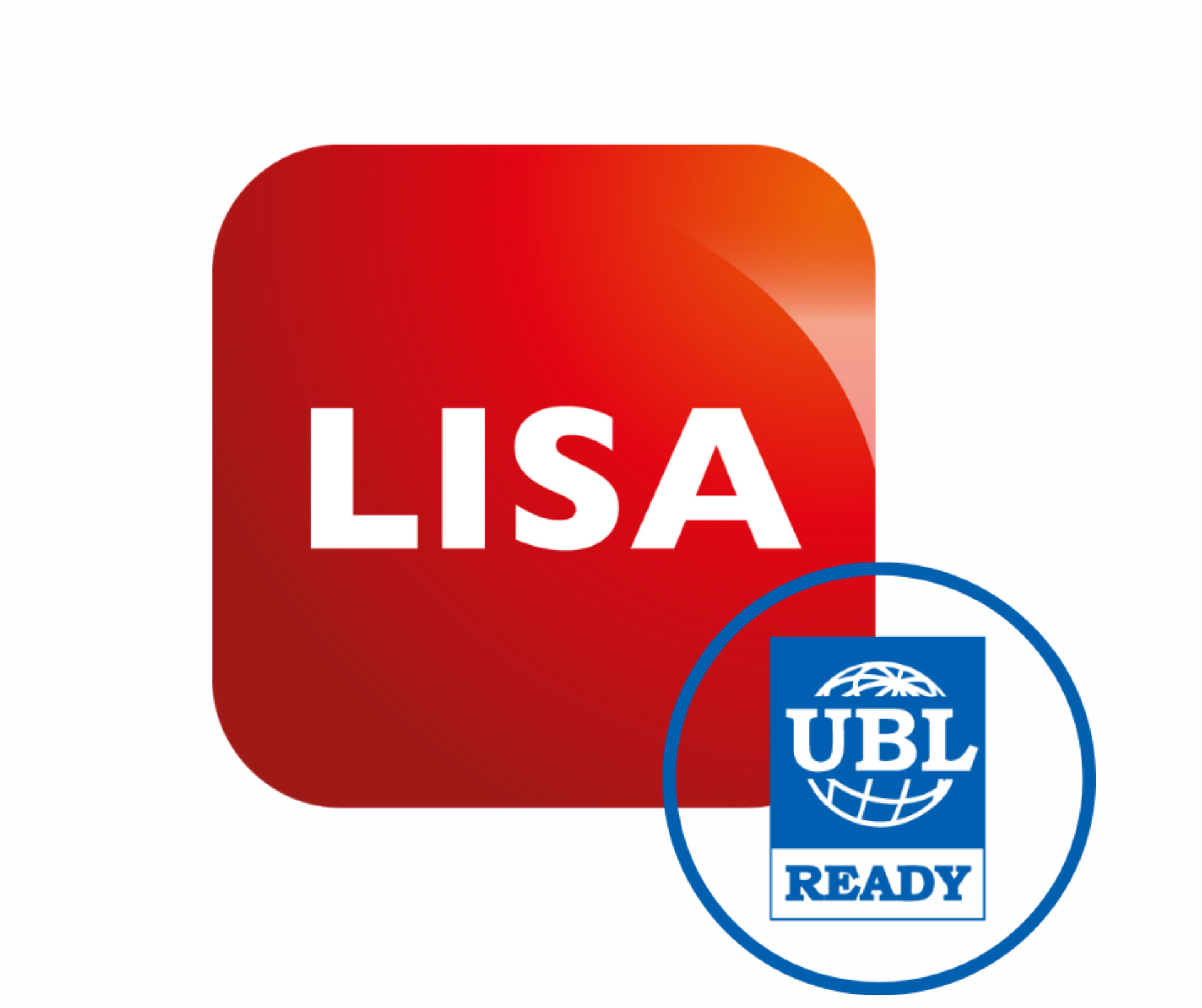Structured electronic invoices will become the norm for b2b from 1 January 2026. LISA is future proof.
Legislation concerning mandatory electronic invoicing, with entry into force on 1 January 2026, was published in the Belgian Official Gazette on 20 February 2024. The initiative comes from Finance Minister Vincent Van Peteghem, who wants to use the legislation to reduce the VAT gap and simplify the administrative management of companies. What do you need to know about this?
What is electronic invoicing?

It involves structured electronic invoicing with mandatory use of the European network PEPPOL, which at launch stood for Pan-European Public Procurement. Today, Peppol is the international standard for sending, receiving and processing electronic invoices. That's a good thing. Sending and receiving itself is done via an access point. You can think of this network as a kind of 'phone network for bills'. To send your recipient a message, all you need is his or her unique Peppol ID. You can compare that ID to a phone number. Even if your recipient changes service providers or access points, he or she remains reachable via the same, unique Peppol ID, just like a phone number. Companies can securely send invoices to each other via unique identification numbers ('Peppol IDs').
Electronic invoices will be formatted according to the standard UBL protocol. So an e-invoice is not merely a scanned paper invoice or a pdf version of it. Specifically, these are XML files built according to a universal structure, the Universal Business Language or UBL. This file is automatically generated and processed without human intervention. Invoices are automatically sent to other companies and are automatically received and read there. Other administrative matters, such as processing in the LISA FIN accounting system, are automatic. Hence we talk about structured electronic invoices, which offer several benefits including cost savings, increased efficiency, reduced errors and faster processing time. LISA is UBL-ready.
What do I need to do to comply with the new electronic invoicing obligations?
- Access to the Peppol network, which operates on the principle of ‘connect once, reach all’.
- LISA ERP equipped with invoice format UBL 2.1
- Do you send or receive invoices via EDI? Yes. Then, by definition, you are already working electronically. This already works in LISA using the UBL 2.1 standard, which means you will be able to continue invoicing in the same way.
- For non-EDI sales invoices, you will have to send your invoice through the PEPPOL network. With the latest version of our ERP system, LISA 24, this feature will be provided as standard. We are working on an upgrade to make this possible for older LISA versions.
- If you also want to automatically process purchase invoices in your accounts that have been received electronically from your suppliers, you also need a document processing tool to read your invoices and process them in the accounts. Electronic purchase invoices can be read into LISA through the connection with various OCR partners and Peppol service providers, such as Billit.
How can I prepare for e-invoicing?
Our CCE team is here for you. We will help you take the necessary steps for this conversion. LISA will make sure you are more than ready. As the deadline approaches, it comes down to properly preparing for the major technological transition. Make the move to e-invoicing today. This will allow you to invoice digitally in accordance with the new legal obligations and without deadline stress. Anyway, you can start preparing by collecting the contacts and e-mail addresses of your customers to whom the electronic invoice will need to be sent. Contact your customer manager to start the process. This will ensure your LISA version is totally future-proof.
Tax concession for mandatory electronic invoicing
Increased cost deduction of 120%
- For what costs?
The tax authorities has decided upon an increased investment deduction of 20 per cent for the cost of your PEPPOL e-invoicing software. This measure applies only and exclusively to the direct costs related to the preparation work required to comply with the obligation to invoice your professional customers via the so-called PEPPOL network from 2026 onwards. Think for example of subscription costs, the cost of invoicing programmes where you can create, send and receive your electronic invoices, as well as consultancy costs incurred specifically for the preparation or implementation of e-invoicing.
Thus, the increased tax deduction does not apply to investments in software and the corresponding depreciation on it.
- Who will enjoy the benefit and for how long is the measure valid?
A temporary scheme for small companies and sole proprietorships that will come into effect for financial years beginning on 1 January 2024 at the earliest. It will be stopped for financial years beginning at the earliest on 1 January 2028.
Increased investment deduction for digital investments of 20%
As mentioned above, the increased cost deduction does not apply to depreciation. The basic rate of investment deduction will be increased to 20% for digital fixed assets from 1 January 2025. This refers to costs for software and equipment to support 'digital payment and billing systems'.
Herbekijk het webinar (4/04/2025): E-facturatie - Peppol Ready met LISA
Via deze link vind je de slides die geprojecteerd werden.
Iets gemist? Je kan het webinar nog eens rustig herbekijken via deze link
.
